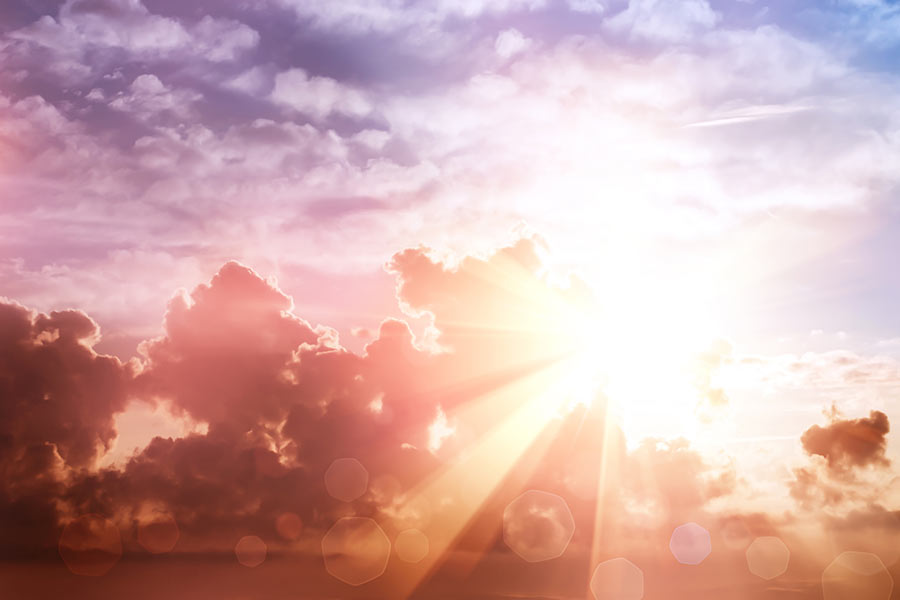What Does “Higher Power” Mean to You?

When Alcoholics Anonymous was founded in 1935, few Westerners had seriously considered any concept of “God” besides the traditional Judeo-Christian version: a single masculine supreme deity, in ultimate control of the universe, stringently moral yet generous and caring. Large numbers of people still believe in a God who fits that description, but societal changes and an increasingly intercultural world have created many other popular images: the God who makes much broader allowances for beliefs and lifestyles than our ancestors would have considered, the God with limited powers who learns as he goes, the feminine or asexual God, the pantheistic God of which everything in existence is a literal part. And, of course, the God who exists only as a personification of human desire to create ethical systems and explain life’s mysteries.
It’s not the purpose of this post to explore any of the above ideas in detail, nor to advocate any specific belief system. Rather, we’ll talk about aspects of the “Higher Power” concept that should be understood by anyone seeking encouragement and support in addiction recovery.
HOW TOXIC PERCEPTIONS OF A HIGHER POWER CAN HURT YOU
However else you conceive of “God,” to be of help in your sobriety journey a Higher Power must be benevolent, have some personal concern for you, be able to affect you and your world, and expect some responsibility on your part.
Many dedicated theists talk about “the God I don’t believe in” in the sense of a theoretical image of God that doesn’t stand up to scrutiny. There are some popular “God” images everyone is better off not believing in:
- The ultra-indulgent God who smiles and pats us on the head as we do whatever we please.
- The “Santa Claus” God who will give us whatever we want on command, if we just learn to pray or act according to his standards.
- The ultra-strict God who’s prone to smiting us with catastrophe if we stumble outside the boundaries of his complicated rule code.
- The puritanical God who despises all forms of human pleasure and demands everyone fit into one narrow behavioral mold.
- The “deistic” God who made the world but really couldn’t care less what we do with it or ourselves.
- The God of “apatheism,” a fairly new concept that says whatever the “real” God is like, it can’t possibly make any difference to our everyday lives.
All these God-views are toxic because they all imply that the Higher Power doesn’t really sympathize with us, and the best we can hope for is to achieve approval or success by our own efforts. That’s the same attitude that, when directed toward our fellow humans, first drives many people to addiction and then keeps them in denial. Nobody can cope with life’s strains and stresses in isolation.
HOW OTHER PEOPLE CAN HELP YOU FIND YOUR HIGHER POWER
If you don’t already know what “Higher Power” means to you personally, discussing the concept with others (especially others who already have everyday relationships with a Higher Power) will open up new insights. Even if your sobriety support group isn’t strictly faith-based, it’s a good place to bring up the subject. Or visit a few religious congregations and see what clicks. If you formerly belonged to a religious congregation yourself, and left for whatever reason, consider giving it another chance.
If you’re already secure in your own beliefs regarding a Higher Power, get active in a faith-based congregation (including small-group fellowship or other opportunities for personal interaction) and attend regularly. The Biblical verse Hebrews 10:25 has the right idea: “Let us not neglect our meeting together, as some people do, but [let us] encourage one another” (New Living Translation). A direct relationship with God is wonderful, but everybody needs ongoing support from people “with skin on.”
DAILY LIVING IN AWARENESS OF YOUR HIGHER POWER
To effectively live a sober daily life with the help of the “Power greater than ourselves that restores us to sanity”:
- Be familiar with the values you want to let guide your life. If you have a Bible or other collection of spiritual guidance, spend some time reading it every day.
- Remember that life is about more than your personal struggles and frustrations. Keep the world in perspective.
- Regularly evaluate your spiritual progress and goals.
- Set aside at least ten or fifteen minutes a day for prayer and/or meditation. Don’t worry about whether you’re doing it “right” or “enough”: just practice quieting your mind so you can hear your Higher Power speak to you.
- Every morning, ask your Higher Power for strength to cope with the coming day’s challenges, opportunities to do good for others, and a heart that actively rejoices in life.

